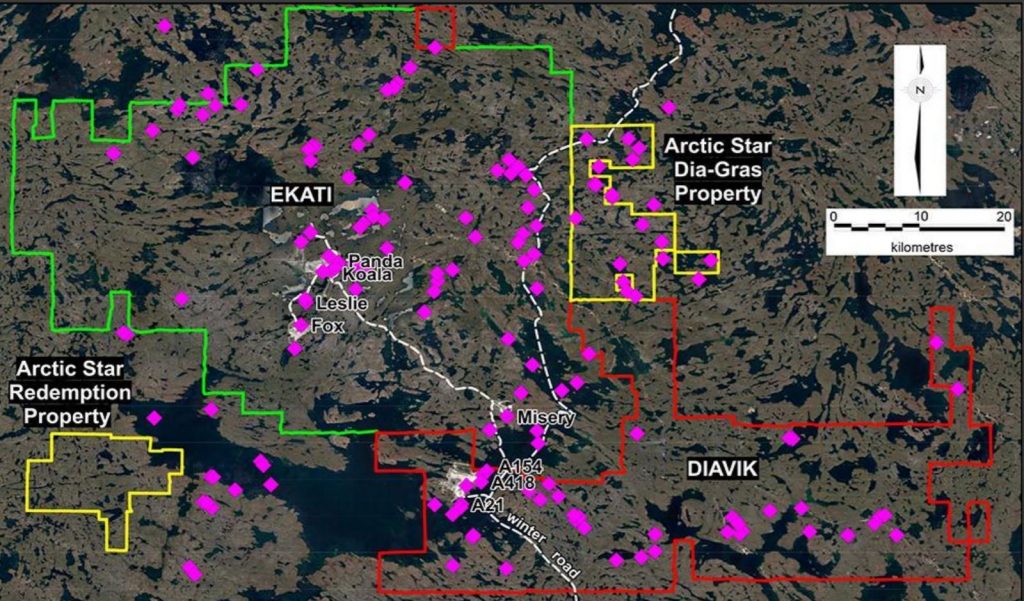Arctic Star unearths new kimberlites at Diagras


Since beginning drilling this year at its Diagras joint-venture project in Lac de Gras, Northwest Territories, earlier this month, Arctic Star Exploration (TSXV: ADD) has already found two new kimberlites.
Diagras, a JV between Arctic Star and Margaret Lake Resources (TSXV: DIA), already hosts 23 kimberlites previously unearthed by De Beers in the 1990s.
Arctic Star is now conducting a $2.1-million drill program testing 10 to 15 targets at the 256-sq.-km project.
“We are all elated to strike kimberlite so early in our 2021 exploration program. It proves our exploration concept, we expect more discoveries as we proceed,” said Buddy Doyle, Arctic Star's vice-president of exploration, earlier this month. “The priority is to make as many discoveries as we can before the ice melts. Material from each discovery will be sent for caustic fusion. We will return to those kimberlites with the highest micro-diamond counts and give them further attention.”
The first kimberlite, Birch, was discovered by targeting an EM and gravity anomaly that occurred in a distinct gap in the magnetic data.
Birch, which has no magnetic signature, is 220 metres southeast of the previously discovered Black Spruce kimberlite, which was found by drilling a discrete magnetic low.
The vertical hole hit kimberlite at 28 metres (under 11 metres of water and 17 metres of overburden) and exited the kimberlite at 71 metres. A second hole is under way to collect more kimberlite from Birch for caustic fusion analysis.
The second kimberlite discovered, Sequoia, was found by drilling at an EM and gravity anomaly that together extend 1 km north-south by 200 metres wide. The previously discovered and diamondiferous Jack Pine kimberlite (which, unlike Sequoia, has a magnetic signature) lies at the southern end of the anomaly.
The vertical hole hit kimberlite at 28 metres (under 7 metres of water and 21 metres of overburden) and was completed at 154 metres, still in kimberlite. Indicator minerals, such as pyrope garnet, eclogitic garnet, clinopyroxene and ilmenite were observed in the core.
Diagras was previously 60% held by Margaret Lake. However, with a shift in its focus away from diamonds in 2019, it is not participating in the current program and Arctic Star has taken over as operator. After the current program is complete, Arctic Star will own 77% of the project with Margaret Lake holding 23%. If Margaret Lake's stake is diluted below 10%, it will convert to a 1% GOR.
The Diagras project is located 380 km north of Yellowknife, 22 km northeast of the Diavik mine and 36 km east of the Ekati mine.
Artic Star also holds the Timantii diamond project in Finland.
For more information, visit www.ArcticStar.ca.
Comments